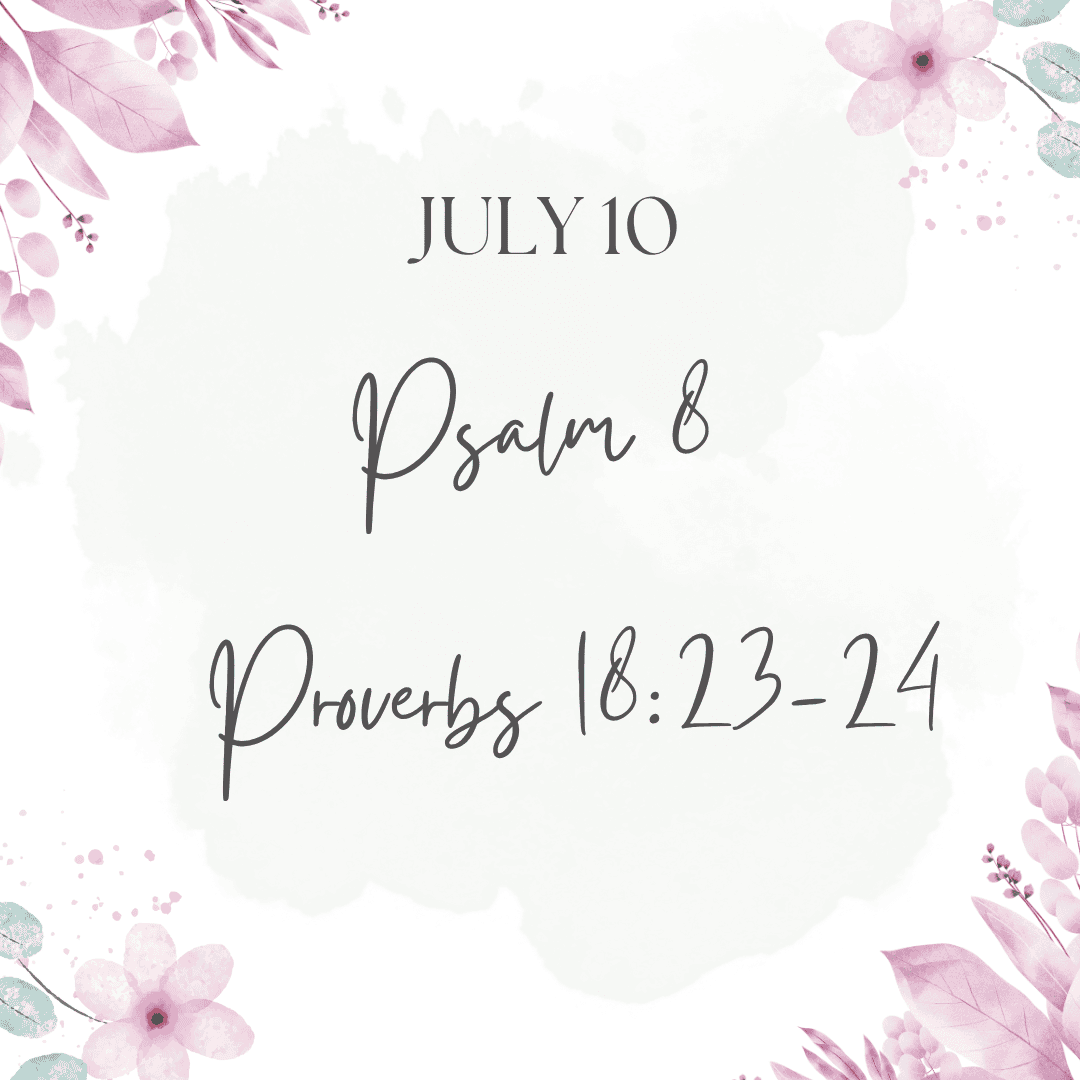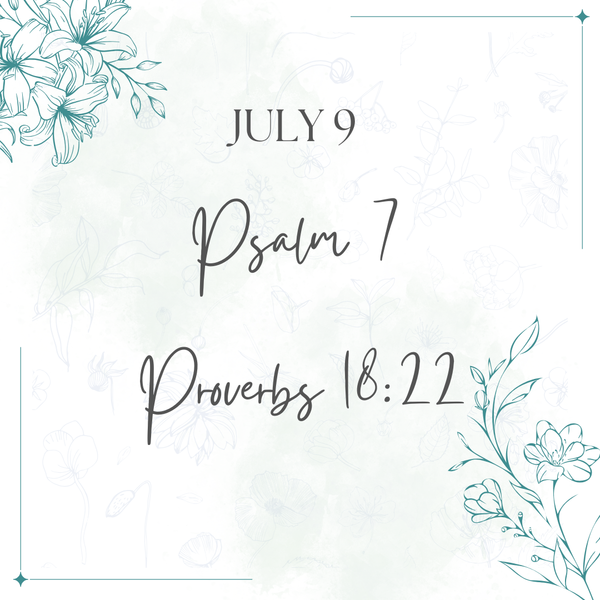July 10 Psalm 8:1-9 Proverbs 18:23-24

- What emotions arise in you when you read, "O Lord, our Lord, your majestic name fills the earth!" (Psalm 8:1,9)? How might meditating on God’s majesty help renew your emotions when you feel small or overwhelmed?
- Why do you think David was so amazed that God would be “mindful” of humans and “care” for them (Psalm 8:4)? How does this awareness of God's care reshape how you view your own worth?
- Psalm 8:2 speaks of children and infants establishing God’s strength. How does this verse challenge common ideas about power and influence, and how might it renew a discouraged or insecure heart?
- According to Psalm 8:6–8, God gave humans dominion over creation. How does this high calling impact your sense of purpose, especially when you're emotionally drained or feel insignificant?
- In what ways does the humility expressed in Psalm 8 contrast with the self-promotion often seen today? How might embracing humility restore emotional balance and rest in your life?
- How does the contrast in Proverbs 18:23 between the poor pleading for mercy and the rich answering harshly highlight the emotional burden of inequality? What character of God is reflected in His concern for the humble?
- Proverbs 18:24 says, “There are ‘friends’ who destroy each other, but a real friend sticks closer than a brother.” How does this verse speak to the emotional pain of betrayal or loneliness, and how can God’s steadfast love bring healing?
- Reflecting on Psalm 8:3–4, how does contemplating God’s vast creation help you reframe anxious or self-centered thoughts? How might regular awe of creation renew emotional clarity and gratitude?
- Psalm 8 points to Christ as the “Son of Man” whom God crowned with glory. How does seeing Jesus as the fulfillment of this psalm strengthen your trust and comfort when your emotions feel unstable or wounded?
- When your emotions feel out of sync with truth, how can you practically use Psalm 8 as a prayer or declaration to realign your feelings with the reality of God’s majesty, mindfulness, and mission for your life?



